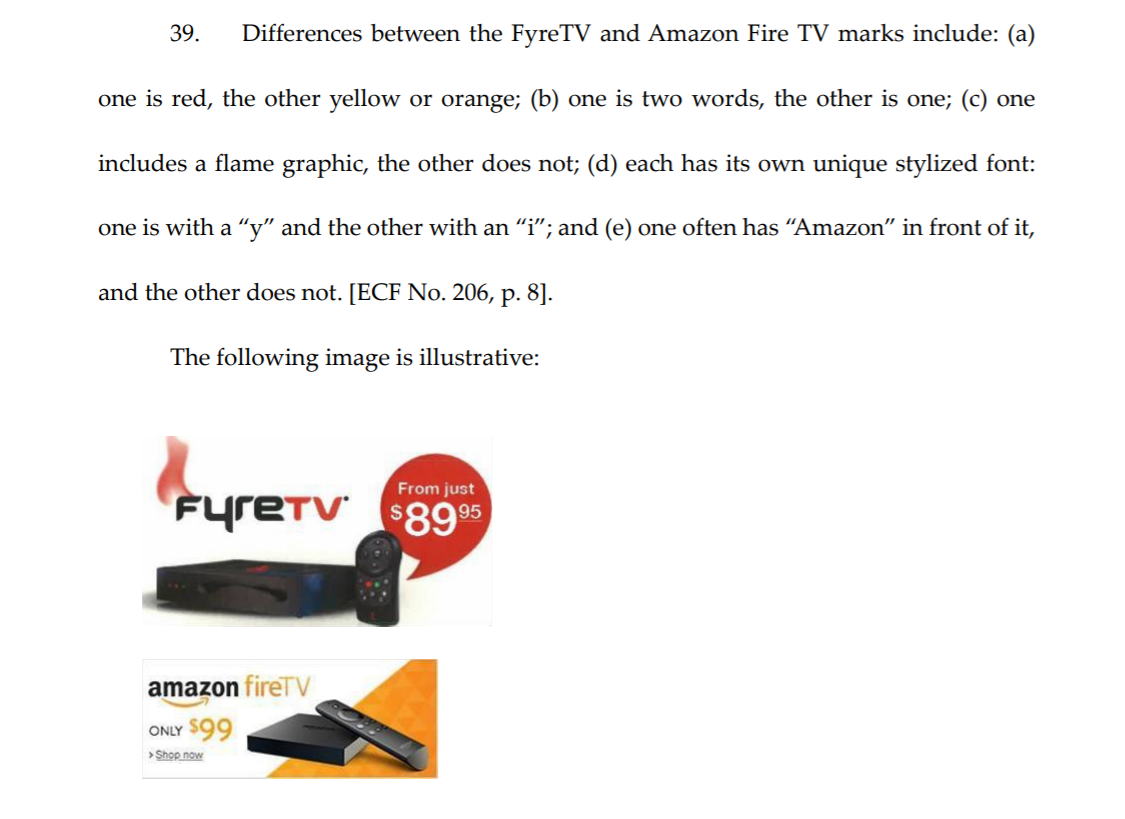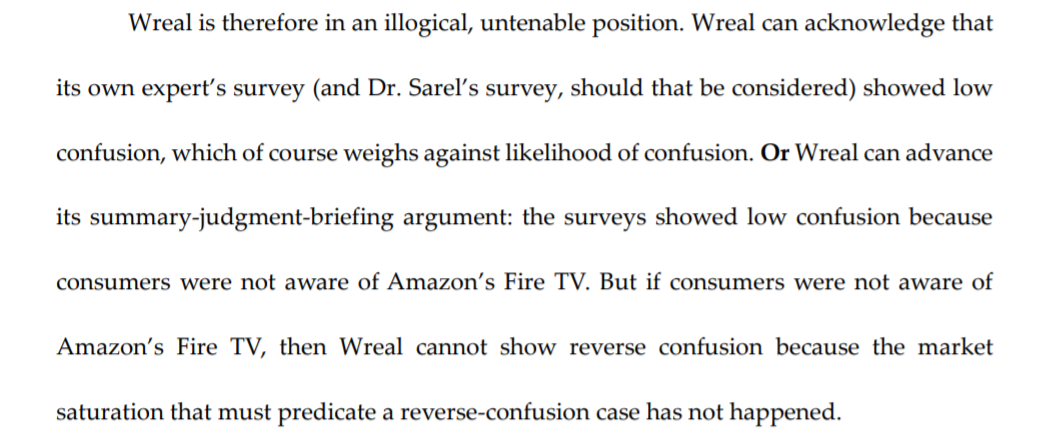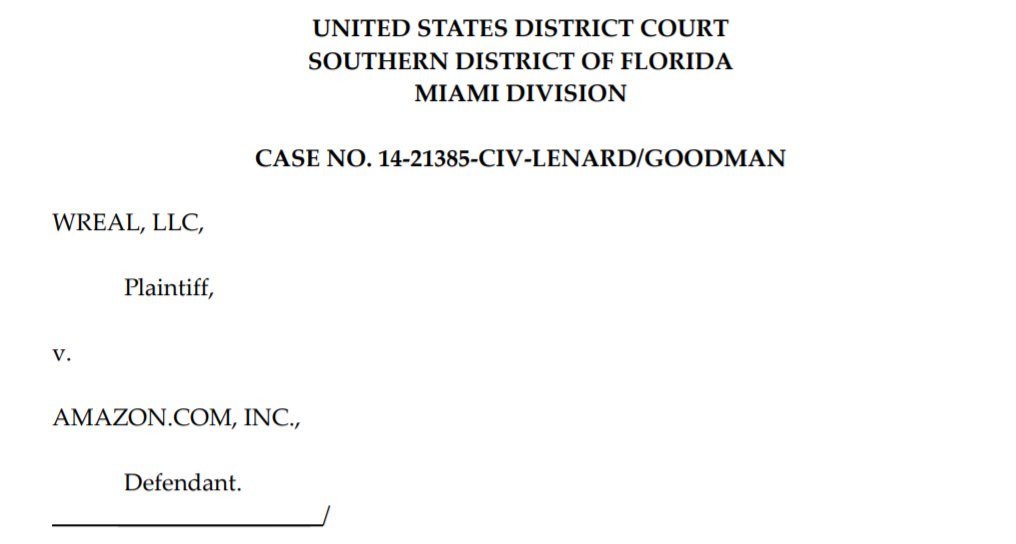In some trademark cases, the plaintiff sues the defendant for trademark infringement based on what is considered to be a reverse-confusion theory. This means that the plaintiff believes that consumers will mistakenly believe that the defendant is the source, affiliate or sponsor of the plaintiff’s product or service.
Such a case has been playing out for many years at a federal court located in the Southern District of Florida in a lawsuit filed by Wreal, LLC against Amazon.com.
Wreal is the owner of the registered trademarks FyreTV and FyreTV.com, which have been used in connection with its hardcore pornography services. Amazon is known throughout the world for its variety of services, including but not limited to Amazon Prime, Prime Video and the Kindle. Wreal complained specifically that Amazon’s Fire TV product has been infringing on its porn-related trademarks.
Amazon knew that FyreTV existed prior to launching a Fire TV product, but does it matter? The court seems ready to rule on that issue at the summary judgment phase of the litigation even though a likelihood of confusion analysis in the realm of trademark law is usually a question of fact.
It was determined that Wreal failed to present sufficient evidence for a reasonable fact-finder to find that “an appreciable number of ordinarily prudent purchasers” will somehow connect its hardcore porn FyreTV service with Amazon. The quoted portion of the opinion is the standard used in the 11th Circuit, which includes the State of Florida.
While actual confusion is not necessary for a plaintiff to show in a trademark infringement lawsuit, a plaintiff must provide more than mere “metaphysical doubt,” said the court. Wreal did not provide evidence of actual confusion, any survey evidence nor any evidence that Amazon markets Fire TV to customers who are interested in streaming hardcore porn.
The marks are also used very differently in commerce.

As the court pointed out, likelihood of confusion requires more than a mere possibility that some consumers may be confused at some point. It requires a true, genuine likelihood that an “appreciable number of ordinary prudent purchasers” will in fact be confused. A speculative possibility does not rise to the level where a plaintiff should prevail.
The reverse-confusion argument did not help Wreal either. In order for the argument to work, it needs to be shown that the public has come to assume that a senior user’s products are really the junior user’s or that they are connected. The consequence would be that the senior user loses its value of its trademark and control over its goodwill and reputation. In this case, Wreal (the senior user) argued that many consumers were not even aware of the Amazon Fire TV. That, alone, kills its argument.
As the court wrote,


